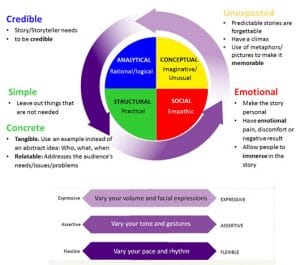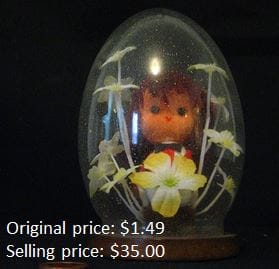Consider this scenario:
Someone asks, “What is a sandwich ?” You Google the definition and say, “Sandwich is an item of food consisting of two pieces of bread with meat, cheese or other filling between them, eaten as a light meal.”
Does that answer the question? What if you were to share this instead?
A long time ago in 1748, there was this British politician and aristocrat called John Montagu who is the 4th Earl of Sandwich (yes Sandwich is a place!). John spent a lot of his free time playing cards. In order to minimize time away from playing cards, he came up with an idea to eat beef between slices of toast which would allow him to finally eat and play cards at the same time. His newly invented “sandwich”, the name for two slices of bread with meat in between, became one of the most popular meal inventions in the western world.
Although you would not necessary have needed to know all that information for a sandwich which is now ubiquitous, a story like that would have informed you of the origins of the sandwich, the use of it, the benefits of eating it, and it will most likely bring to mind an image of you eating a sandwich and playing cards at the same time. Now, imagine if it was some unknown item or a concept that that was very complex. A story would do the trick any time.
A story can put your whole brain to work. By simply telling a story, we can plant ideas, thoughts and emotions into the listeners’ brains. We can get others to experience the same thing that we have experienced if we tell the story in the way we have experienced it.
There are many elements to effective storytelling, and I started to ponder about how Emergenetics would help one tell a better story. Of course, understanding Emergenetics itself would help guide a presentation flow, but I thought there must be a way to also consider the different Thinking preferences [1] for the content and the Behaviour Attributes [1] for the tone.
The following was what I came up with which I delivered at a workshop in July this year.

Using this very simple method, try to see if you can explain what a burger is to someone or make up a story for an item you are trying to sell— that is the beginning of branding. The more immersed the audience is with your item, the more likely they will pay a higher price for it.
And this is something worth believing, based on an experiment that was done several years ago with this doll. This story goes along with it:

This dome doll was purchased three years ago for $1.07 (including tax) at a Dollar Store in the Chattahoochee Shopping Center in Knoxville, Tennessee. It was originally part of a pair. On the bottom of the package (now discarded) I found a sticker with the message: “IN CASE OF EMERGENCY, BREAK GLASS.” The dolls also came with the following instructions written in both English and Flemish. I have included the English side for you. If you would prefer Flemish, please let me know. Read the instructions carefully before use. (Those who dislike following instructions should refer to page A3 of the February 18thedition of the Knoxville News Sentinel.)
INSTRUCTIONS:
Congratulations! You are now the proud owner of twin dome dolls. Their names are Saakje and Saertgen. Treat them with love and respect, and they’ll be your most loyal companions. Keep one dome doll on your person at all times. They prefer a pocket, but a purse will do. Dome dolls thrive in temperatures between 60 and 80 degrees Fahrenheit. Extreme heat or cold can cause cracks in the glass, which may lead to an unintentional release. If you must travel by air, DO NOT pack your dome dolls in your luggage. Never subject your dome dolls to the following: Fire, microscopes, foul language, infants, deep water, x-rays, excessive whining, the TSA, ammonia-based cleaning sprays, or French accents.
To break the glass, place a dome doll under the heel of one shoe. Apply even pressure. Do not hurl or bash. Once the glass breaks, remove heel immediately and take two steps to the left. Close your eyes and do not inhale for five full seconds. (Best when used in a well-ventilated space.) Once you are able to open your eyes, leave the scene as quickly as possible. Resist the urge to take pictures or videos. Phone the authorities when you’ve reached a safe distance. Do not identify yourself. IMPORTANT: Use only in emergency situations. The effects are permanent and cannot be altered or reversed by pleading or crying, no matter how sincere. Each dome doll is single use only. Do not attempt to remove a doll from the scene of an emergency. Once free, they must remain free. Keep away from children under the age of eight. Not intended for use by individuals over the age of thirty. Sale prohibited in the Netherlands.
Read for more information! http://significantobjects.com/press-clippings/ [2]
About the Author
Shane Yan
Emergenetics Associate [3]
Managing Director, Savoir Asia Consulting Pte Ltd
www.savoir-asia.com [4]
Connect on Facebook [5]